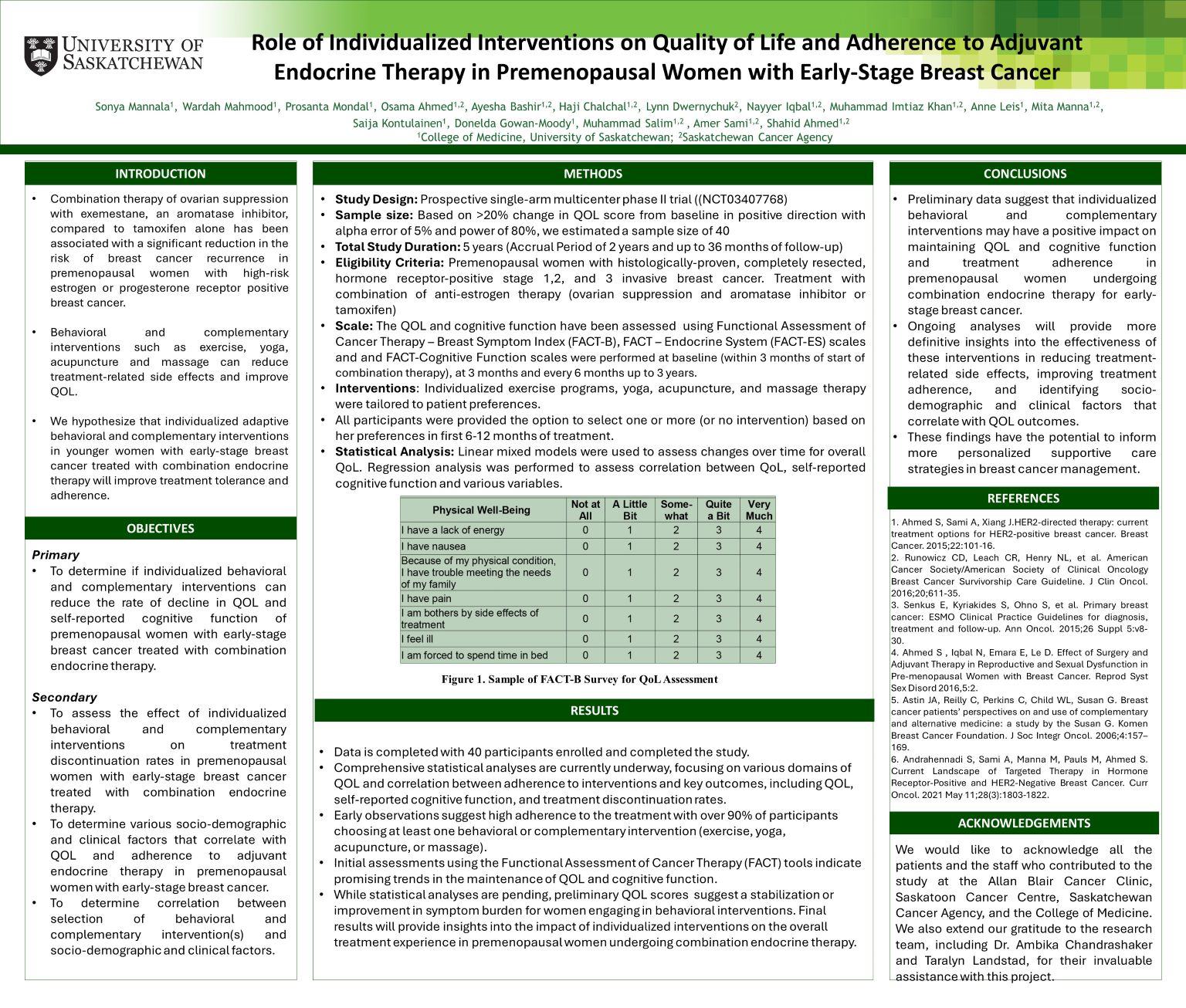
Role of Individualized Intervention(s) on Quality of Life and Adherence to Adjuvant Endocrine Therapy in Premenopausal Women with Early-Stage Breast Cancer: MyChoice Study
Sonya Mannala
Breast cancer is one of the most prevalent cancers among women, with approximately 25,000 new cases diagnosed each year in Canada. For premenopausal women with high-risk, hormone receptor-positive early-stage breast cancer, five years of ovarian suppression combined with an aromatase inhibitor (AI) or tamoxifen significantly reduces the risk of recurrence. However, combination endocrine therapy often leads to severe side effects that diminish quality of life (QOL) and reduce adherence to therapy. The MyChoice trial, a prospective phase II study, was designed to assess the impact of individualized, behavioral and complementary interventions on improving QOL and adherence to adjuvant endocrine therapy in premenopausal women with early-stage breast cancer. Primary outcomes focused on changes in QOL and cognitive function, while secondary outcomes explored treatment discontinuation rates and the socio-demographic and clinical factors that affect QOL and adherence. Preliminary findings show high adherence to treatment, with over 90% of participants engaging in at least one behavioral or complementary intervention. Early results suggest promising trends in maintaining QOL and cognitive function with initial QOL scores indicating potential stabilization or improvement in symptom burden. Final results will elucidate the impact of individualized interventions on the treatment experience for premenopausal women undergoing endocrine therapy.
